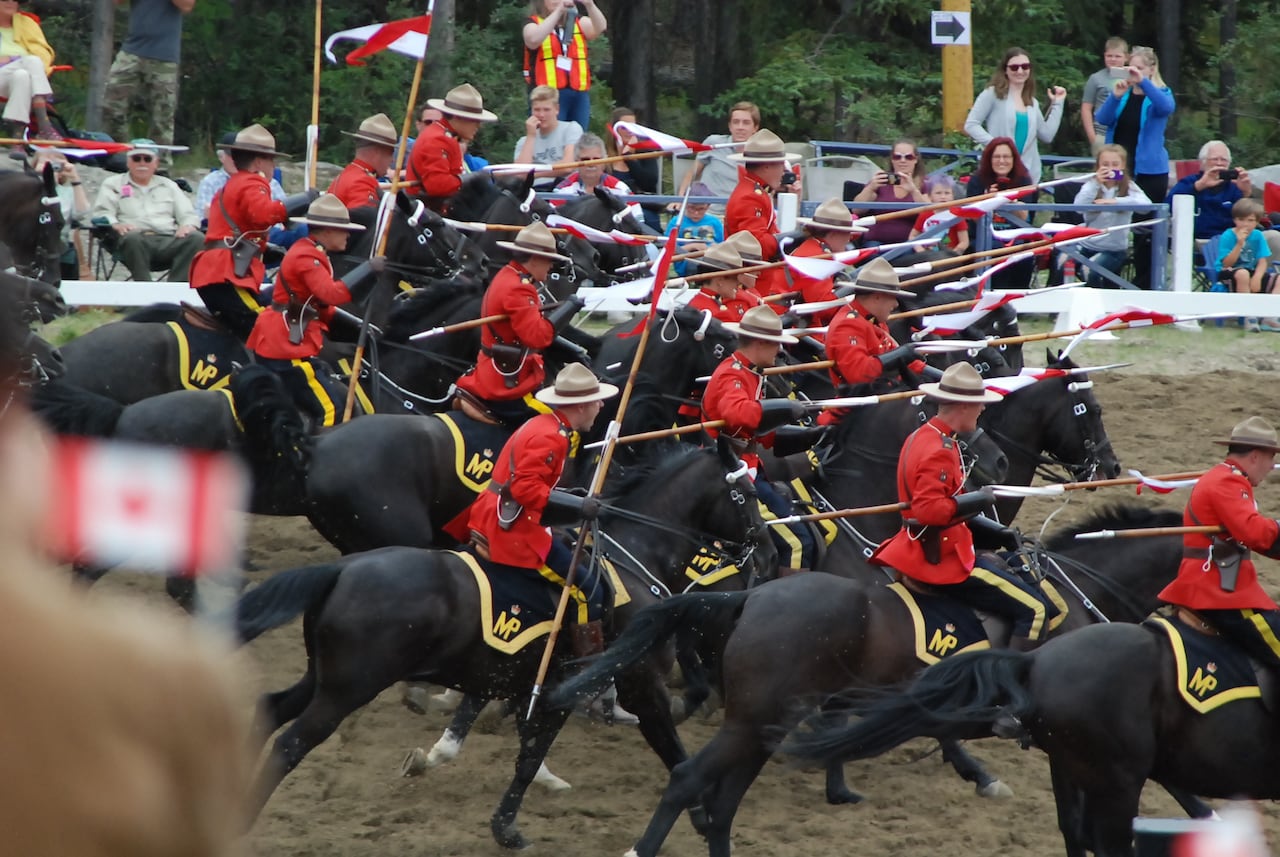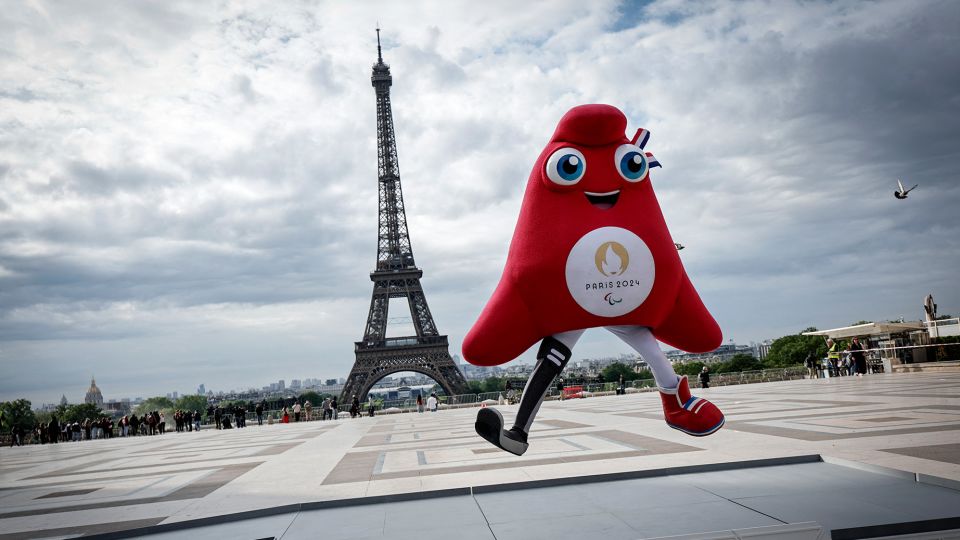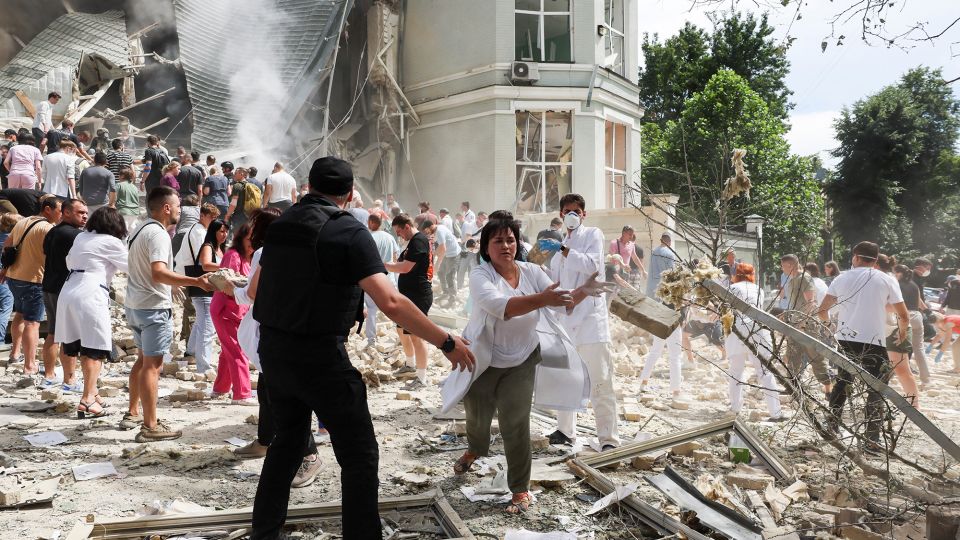
EMPTY SADDLES: THE RCMP'S RECRUITMENT CRISIS IS THREATENING THE CELEBRATED MUSICAL RIDE
It's an image as Canadian as anything on a coin — Mounties in their red serge dress uniforms, putting their horses through the complex paces of the renowned Musical Ride.
But after more than a century of entertaining summer crowds from coast to coast, the RCMP's iconic Musical Ride is in trouble, plagued by low morale and staffing woes that threaten the program's future, according to an internal audit conducted by the RCMP.
"The limited availability of new riders is a significant threat to its sustainability," says the audit report, recently posted online. A copy of the audit was first released through an access to information request to independent journalist Dean Beeby.
"The mental and physical well-being of Musical Ride members has suffered in recent years and is contributing to low morale," the report says. "Evidence suggests this is a pervasive issue which requires attention from management."
The Musical Ride traces back to the RCMP's beginnings as the North-West Mounted Police in the 1870s.
According to the RCMP's official online history, some of the very first Mounties would break up the monotony of riding drills by competing among themselves and performing tricks on horseback.
Those impromptu performances were later repeated for crowds and, over time, evolved into the modern day Musical Ride. The RCMP's Musical Ride unit travels around the country and abroad to perform calvary drills set to music.
"It is seen as an iconic image of Canada and is the RCMP's largest public relations vehicle," says the audit report. "The Musical Ride is inherently positive, when often the RCMP is reflected in a negative light."
But the RCMP says the staffing shortages undermining its frontline policing services have spread to the Musical Ride.
The audit report — which was conducted late last year but only posted online last week — says that hard-pressed RCMP division heads aren't releasing interested officers from their policing duties to do a stint on the Musical Ride.
Without a steady and consistent supply of riders, the Mounties already assigned to the ride unit can't rotate out to their next postings.
Supt. Kevin Fahey, the officer in charge of the Musical Ride and heritage branch, said the audit results are troubling but not surprising.
"To know 'my replacements aren't coming,' it's very unsettling. And it could be a major cause of stress, a lot of hardship on families as well," he said.
"People were ready to move on."
Longer postings to the Musical Ride are also having physical impacts on riders, says the audit report.
"The Musical Ride is a physically demanding job that leads to an above-average number of injuries to riders; the longer they stay, the higher the likelihood of being injured," it says.
Audit flags safety concerns
Fahey said that is especially true for Mounties who "aren't natural riders."
"More than 90 per cent of our people never rode horses before. So the training years are very tough," he said. "Injuries can happen at any time because horses are very unpredictable."
The report also points out that when the COVID-19 pandemic caused performances to be cancelled, the confinement had some troubling effects on the horses.
"Confined horses displayed undesirable behaviour, meaning a significant amount of time was required to exercise the horses for their physical and mental well being," it says.
"Each year, new horses are exposed to the Musical Ride in training and in preparation for joining the performance; however, over the course of the pandemic new horses were not given this exposure, which led to concerns for safety, training and preparedness."
The unit has not been able to fully staff its positions and has not had a full complement of 32 riders since 2018.
Fahey said the ride is at its lowest point to date now, with just 16 riders attached to the unit.
The auditors say that discontinuing the Musical Ride would have only a "limited impact" on the RCMP's shortage of officers — and warned against doing so.
"It would also create a void in positive public relations and potentially result in long-term negative repercussions for the RCMP," says the report.
"All sergeants major indicated that the Musical Ride is worth the investment made. Many indicated that re-distributing members and budget from the Musical Ride to other areas would only be 'a drop in the bucket' or 'a band-aid solution' that would have little impact on current resource issues."
RCMP faces staffing issues across the country
Michael Boudreau, professor of criminology and criminal justice at St. Thomas University in Fredericton, N.B., said the audit's findings point to deeper staffing issues facing the RCMP.
"The force in some cases is broken. When its own members aren't prepared to join one of the most iconic symbols of the force, well then, why should we support it?" he said. "What role does the RCMP play anymore?
"Even anecdotally teaching criminology ... ten years ago, I could have asked my first year students, 'How many of you are here because you want to be RCMP officers?' Half the class would raise their hand. Now, when I ask the same question, maybe a few people raise their hands."
RCMP vacancy rates range up to 20 per cent in some parts of Canada and the police service has warned of a recruitment crisis threatening its ability to adequately serve large parts of the country.
"It makes it very difficult to conduct policing on a daily basis," said Boudreau.
"That also erodes public confidence in the police ... That erosion of public confidence then leads, I think indirectly, to why people don't want to join the force ... And so it is a vicious circle."
RCMP Commissioner Mike Duheme has cited boosting recruitment as one of his top priorities and has suggested in recent interviews that the number of people applying to serve is slowly rising.
Still, the Mounties' external Management Advisory Board says it continues to have concerns about vacancy rates across the country.
"Even with the increased numbers of cadets who will soon be loaded at Depot, all Regular Member (RM) vacancies will not be filled and this will remain the case for several years," wrote the board in a letter to Duheme last month.
"In this regard, we will be encouraging bold and creative thinking around recruitment and training, both at and beyond Depot, to fill RM vacancies in short order."
Suggestion to add civilian riders rejected
The RCMP auditors interviewed more than 30 people, surveyed 88 current and former Musical Ride members, sorted through 144 internal documents, reviewed RCMP administrative and financial data, heard from 109 communities that hosted the performance and observed five Musical Ride performances.
A few interviewees suggested that civilian members be recruited to fill spots on the Musical Ride — a notion rejected by the audit's authors.
"Legitimacy and effectiveness of the Musical Ride could be negatively impacted if the riders were not police officers," they wrote.
"A hybrid of regular members and civilians could lead to challenges (for example, difference in uniforms, pay scales, collective agreements)."
It did suggest bringing civilians in for the non-riding jobs needed to keep the Musical Ride afloat.
"With more civilian staff, regular members could potentially have more availability to support other areas of the RCMP in times of need," says the audit report.
The RCMP said it's already addressing the gaps highlighted in the audit and is developing a policy to encourage the short-term release of RCMP officers to serve in the Musical Ride.
It also has promised to set up a morale and wellness committee to better address members' concerns.
Fahey said "a healthy rotation" rate would boost morale among riders — and he believes a strong Musical Ride is good for the organization overall.
"The Canadian public's support of the RCMP is crucial," he said.
2024-07-04T08:07:21Z dg43tfdfdgfd










